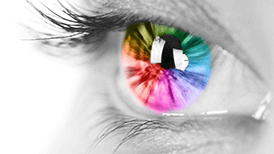Definition of Active and Effective Listening Skills

People tend to put much emphasis on speaking skills from public speaking, to presenting projects in meetings or even giving speeches.
The misconception is that the most important skill that one needs to acquire for effective communication skills is speaking skills.
However, this is not necessarily true, because in the course of communicating one needs to be understood, there needs to be situation of concurring of minds and following of ideas, thus the best way to understand what the person you are conversing with is saying is by listening to them.
Listening is the main key to effective communication this is because without the ability to receive messages and interpret them accurately there can be a breakdown of communication leading to irritability, frustration or even conflict.
Observe Rather Than Talk
Listening skills involves not only hearing what is being said but also relating to the speaker and acknowledging their emotions.
It involves gauging the situation taking all surrounding circumstances into consideration and providing appropriate verbal responses to the situation.
In other terms listening skills involve receiving and interpreting both verbal and non-verbal messages.
The ability to have effective listening skills is highly determined by the way you perceive and interpret the message.
Observation also involves paying attention to small details; it entails knowing the meanings behind the body language used by the sender and being able to detect any inconsistencies between verbal and non-verbal messages.
Having good listening skills is a desired quality that employers seek from employees or job candidates.
This is because it can lead to better customer satisfaction as you are able to tell whether the customer is pleased with the products or not judging from not only their verbal responses but also their non- verbal responses.
It can also lead to better work turnout as there is no miscommunication and lower probability of making mistakes leading to more accurate and creative work.
Focus On the Person Speaking
Listening involves accurately receiving and interpreting the message.
Therefore if you start doing other things in the course of listening it may completely distort the message as you are not able to capture the main points being emphasized on.
Concentrating on other things may actually turn off the sender of the message as they easily realize that they are not being listened to.
This can lead to conflict especially in the work area. Remember the speaker is also taking note of your responses to determine whether the message sent is being received accurately.
If you start looking out the window, shuffling papers, searching for lost items or even writing without taking a glance at the speaker it may send out the message that the speaker is boring or is wasting his or her time talking to you.
Even during a public speech or a presentation, presenters often require responses from the audience such as nods or accepting facial gestures to determine whether their message is being received accurately.
Maintain constant eye contact as a sign of listening and nod if you agree with the message to show the speaker you understand what is being said.
Additionally as a listener it is good to listen to the ideas, try to link together different pieces of information sent understand the information and come up with accurate ideas.
This is because many people have different styles of putting out their ideas so it is important as a listener to understand the gist of the isolated bits and pieces of information the sender uses.
Patience and Avoid Prejudice
Effective communication is a two way venture, therefore before speaking gauge whether you are interrupting the speaker, speak only when it is appropriate.
Patience is a virtue therefore does not tire if the speaker is slow, they may just be formulating what they want to say in their minds.
Most importantly do not finish the speaker’s sentences if he/she has not signaled for you to do so.
This means that you should be able to read the non-verbal cues that the speaker exudes from his manner of talking.
Do not also let become easily distracted from the message because of the speaker’s habits or actions, be flexible and accommodative.
This is because every person who speaks has a different way of putting out the messages and ensuring the messages are well understood.
Some people may be shy and nervous making them fidget, stammer and some may talk fast.
Others may not clearly articulate their messages because of mother-tongue influences or having regional accents.
These styles of delivering messages should not deter you from listening.
Invalid YouTube URL
People tend to put much emphasis on speaking skills from public speaking, to presenting projects in meetings or even giving speeches.
The misconception is that the most important skill that one needs to acquire for effective communication skills is speaking skills.
However, this is not necessarily true, because in the course of communicating one needs to be understood, there needs to be situation of concurring of minds and following of ideas, thus the best way to understand what the person you are conversing with is saying is by listening to them.
Listening is the main key to effective communication this is because without the ability to receive messages and interpret them accurately there can be a breakdown of communication leading to irritability, frustration or even conflict.
Observe Rather Than Talk
Listening skills involves not only hearing what is being said but also relating to the speaker and acknowledging their emotions.
It involves gauging the situation taking all surrounding circumstances into consideration and providing appropriate verbal responses to the situation.
In other terms listening skills involve receiving and interpreting both verbal and non-verbal messages.
The ability to have effective listening skills is highly determined by the way you perceive and interpret the message.
Observation also involves paying attention to small details; it entails knowing the meanings behind the body language used by the sender and being able to detect any inconsistencies between verbal and non-verbal messages.
Having good listening skills is a desired quality that employers seek from employees or job candidates.
This is because it can lead to better customer satisfaction as you are able to tell whether the customer is pleased with the products or not judging from not only their verbal responses but also their non- verbal responses.
It can also lead to better work turnout as there is no miscommunication and lower probability of making mistakes leading to more accurate and creative work.
Focus On the Person Speaking
Listening involves accurately receiving and interpreting the message.
Therefore if you start doing other things in the course of listening it may completely distort the message as you are not able to capture the main points being emphasized on.
Concentrating on other things may actually turn off the sender of the message as they easily realize that they are not being listened to.
This can lead to conflict especially in the work area. Remember the speaker is also taking note of your responses to determine whether the message sent is being received accurately.
If you start looking out the window, shuffling papers, searching for lost items or even writing without taking a glance at the speaker it may send out the message that the speaker is boring or is wasting his or her time talking to you.
Even during a public speech or a presentation, presenters often require responses from the audience such as nods or accepting facial gestures to determine whether their message is being received accurately.
Maintain constant eye contact as a sign of listening and nod if you agree with the message to show the speaker you understand what is being said.
Additionally as a listener it is good to listen to the ideas, try to link together different pieces of information sent understand the information and come up with accurate ideas.
This is because many people have different styles of putting out their ideas so it is important as a listener to understand the gist of the isolated bits and pieces of information the sender uses.
Patience and Avoid Prejudice
Effective communication is a two way venture, therefore before speaking gauge whether you are interrupting the speaker, speak only when it is appropriate.
Patience is a virtue therefore does not tire if the speaker is slow, they may just be formulating what they want to say in their minds.
Most importantly do not finish the speaker’s sentences if he/she has not signaled for you to do so.
This means that you should be able to read the non-verbal cues that the speaker exudes from his manner of talking.
Do not also let become easily distracted from the message because of the speaker’s habits or actions, be flexible and accommodative.
This is because every person who speaks has a different way of putting out the messages and ensuring the messages are well understood.
Some people may be shy and nervous making them fidget, stammer and some may talk fast.
Others may not clearly articulate their messages because of mother-tongue influences or having regional accents.
These styles of delivering messages should not deter you from listening.
0Comments
Like
Comment
Send
Top Rated Courses
Test Your Skill Set

Do you want to check how much tellented you are? Test your skill here and get certificate.





























 Instagram
Instagram
Comments